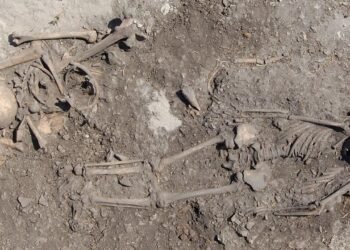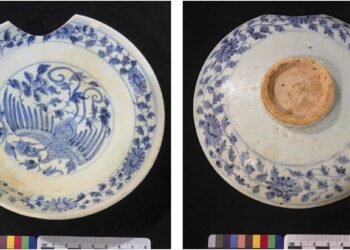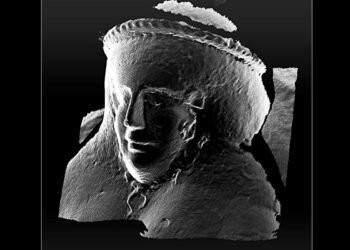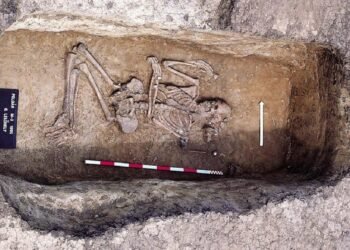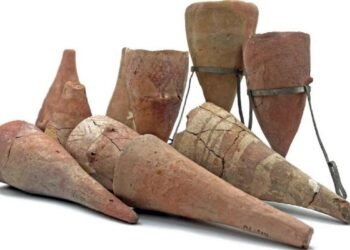A collaborative project between the Kalispel Tribe and archaeologists from Washington State University (WSU) has yielded a remarkable discovery of 5,000-year-old earth ovens near Newport in Washington State, United States.

The ovens were found on land recently acquired by the Kalispel Tribe for housing purposes near their tribal reservation. The excavation, conducted by a team of professional archaeologists and WSU students, aims to explore the features of these ancient ovens and investigate potential changes in their size and shape over time.
The radiocarbon dating of the ovens suggests an age of 5,000 years, and the oven contents have been sent to WSU labs for analysis, with the hope of finding organic remains that can provide insights into the diet and food processing techniques of the tribal ancestors who lived along the Pend Oreille River.
Of particular interest is the study of camas, a flowering plant with edible roots that was commonly used for baking bread. While the Kalispel Tribe has preserved the tradition of baking camas bread through generations, little is known about the oven technology employed before 3,000 years ago.
Professor Shannon Tushingham of WSU emphasizes the importance of modern technologies in unraveling the mysteries of ancient food practices. By utilizing advanced techniques, the researchers aim to determine the types of food consumed and the methods employed for their preparation.
The project involves not only archaeological investigations but also the collection and analysis of soil samples to identify charred seeds, nuts, and protein residues.
The excavation has revealed multiple earth ovens. The bowl-shaped ovens, dug into the sandy soil and lined with fuel and rocks, demonstrate the sophisticated techniques employed by ancient tribes to cook their food. Samples taken from these ancient ovens will be examined for traces of food residues.
This comprehensive approach aims to gain a clearer understanding of the diet and food processing techniques employed by the ancient tribal communities residing along the Pend Oreille River.
The research team also hopes to shed light on the significance of this particular location, where people chose to cook their food consistently over thousands of years. The investigation extends beyond the ovens themselves, incorporating environmental reconstructions and ethnographic data to provide a holistic understanding of the ancient tribes’ way of life.
For the Kalispel Tribe, this excavation represents a unique opportunity to share their historical experiences with the public, fostering understanding and appreciation for their rich history and traditions.
The tribe has actively preserved its cultural heritage by passing down cooking techniques from one generation to the next. However, this excavation offers an unprecedented opportunity to explore earlier oven technologies, further enriching their knowledge of their ancestors’ culinary practices.



